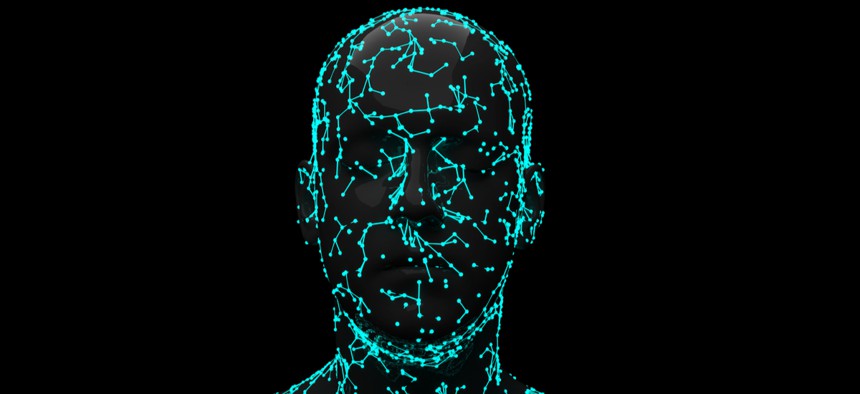Study: More than Half of Americans Trust Law Enforcement to Use Facial Recognition Responsibly

Design_Cells/Shutterstock.com
Pew Research Center’s study is the latest to conclude Americans are growing more comfortable with having their faces scanned.
Americans continue to warm to the idea of biometric scans and facial recognition technology, at least when it comes to U.S. law enforcement’s use of the tools.
The latest evidence comes in the form of a Pew Research Center study released this week that found 56% of Americans trust U.S. law enforcement agencies to use facial recognition technology responsibly.
Another 59% of Americans found it acceptable for law enforcement to employ facial recognition technology in public spaces if the technology was used to assess potential security threats.
However, the study indicates the public has substantially less trust in the technology to be used responsibly by tech companies (36%) or advertisers (18%). The study also indicates major differences in the opinions of young people and older Americans as well as Democrats and Republicans.
“A substantially smaller share of young adults think it is acceptable for law enforcement to use facial recognition to assess security threats in public spaces relative to older Americans,” said Aaron Smith, Pew Research Center’s director of Data Labs, in a blog post. “Similarly, smaller shares of black and Hispanic adults than whites think the use of facial recognition technology by law enforcement is acceptable, and the same is true of Democrats compared with Republicans.”
The Pew study—comprised of data from a nationally representative survey of 4,200 Americans in June—continues an upward trend of Americans’ comfort with face-scanning and biometric technology in the past year.
A September 2018 study by the Brookings Institution found half of Americans favored limitations in the use of biometric technology by law enforcement, with 42% reporting the technology invaded personal privacy rights. A survey released in January 2019 by the Center for Data Innovation showed an uptick in Americans’ confidence in the technology, with 59% supporting the use of facial recognition technology, providing the software works as it should.
The attitude change comes as the federal government’s use of facial recognition tech has increased. Last summer, Washington Dulles International Airport became the first U.S. airport to apprehend an imposter with new biometric cameras. At border points of entry, U.S. Customs and Border Protection has apprehended more than 100 imposters and identified more than 14,000 people who left the country after overstaying visas, a spokesperson told Nextgov in May.
And in July, it was revealed that Immigrations and Customs Enforcement agents used facial recognition tech on state driver’s license photos.
Yet even amid the public scrutiny of these uses of the technology and others, Pew’s research indicates 13% of Americans have not heard anything about facial recognition.






